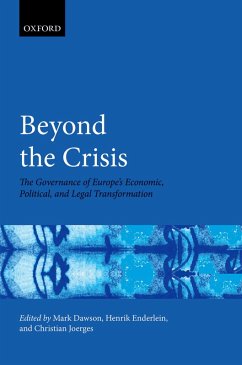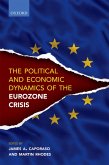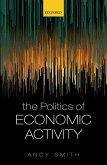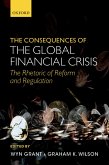In the wake of the euro crisis, the European Union has been transformed in many ways. Is it now on the right track? The euro crisis, the steps taken to manage it, and the resulting transformations have triggered a necessary process of reconsidering economic governance in the European Union. This volume- the third in a series of annual editions tackling different aspects of governance- examines the long list of open political, legal, and economic questions related to the functioning and fundamental structure of the Union as a whole and the economic and monetary union in particular. Organised in three main sections, the contributions to this collection bring the perspectives of different academic disciplines to bear on the functional aspects of economic governance, the institutional transformations that have taken place, and their implications for the Union's legitimacy. A separate chapter looks at inequalities in perceptions of economic conditions and well-being within the European Union to identify trends particularly during the eurozone crisis. In doing so, the chapters in this volume take stock of the current situation, shed light on the dilemmas and challenges that must be recognised and addressed, and explore various options for the way ahead. The collection's ultimate goal is to assess whether the recent transformations lead EU governance in the right direction or require further adjustment.
Dieser Download kann aus rechtlichen Gründen nur mit Rechnungsadresse in A, B, BG, CY, CZ, D, DK, EW, E, FIN, F, GR, HR, H, IRL, I, LT, L, LR, M, NL, PL, P, R, S, SLO, SK ausgeliefert werden.









